Stemming the Yuletide
Every December every conceivable public space fills with Christmas songs, some of the most ubiquitous of them written by Jews: not only “White Christmas” by Irving Berlin, but “The Christmas Song (Chestnuts Roasting on an Open Fire)” by Mel Tormé and Robert Wells, “Let It Snow! Let It Snow! Let It Snow” (Sammy Kahn and Jule Stine), Eartha Kitt’s 1953 hit “Santa Baby” (Joan Javits and Philip Springer), and “Rudolph the Red-Nosed Reindeer” (Johnny Marks). As the Yuletide rolls in, one finds oneself yearning for some Hanukkah pop with a little more depth than Adam Sandler’s Hanukkah song. Although you won’t hear its trendy tracks at the supermarket, Hanukkah+, an album of originals and covers, has arrived just in time to represent our people.
The album’s one and only traditional Hanukkah song is movie star Jack Black’s acapella-meets-metal rendition of “Oh Hanukkah.” Black’s vocals range from a breathless racing through the kitschy verses to a chorus growl as angelic voices harmonize high above. (Strangely, the album’s producers have chosen to close the album with Black’s arrangement of the Passover classic, “Chad Gadya,” which he once told Conan O’Brien he sang to get his child into a Jewish kindergarten.)
The album was inspired by the acclaimed indie band Yo La Tengo’s Hanukkah Run, an annual eight-night concert series at the Bowery Ballroom that is now in its 18th year. The band’s frontman is Ira Kaplan, but not all of the band’s members are Jewish. “It was more that it seemed challenging and funny to play eight nights in a row with all the hoopla over Christmas. I thought that Hanukkah could use a bit of a spotlight,” Kaplan says. In stores filled with row after row of Christmas-themed aisles, there is always one small display of Hanukkah merchandise, and Hanukkah+ strives to be that musical endcap. It’s serious about being here but doesn’t take itself too seriously.
The collection feels like what you would listen to over Hanukkah break in the Caribbean, swimming up to the poolside bar and ordering a mixed drink with a little paper menorah in it instead of an umbrella. It’s mood music that should be piped in overhead at Loehmann’s as you search for the perfect ugly holiday sweater. Produced by the Grammy-winning music supervisor Randall Poster, who is the long-term collaborator of Wes Anderson and who worked on soundtracks for films such as Skyfall and The Wolf of Wall Street, it has an eclectic and somewhat retro vibe (think The Royal Tennenbaums or Nick Drake’s “Fly”).
Another standout is “Give You Everything,” a whimsical love song by Buzzy Lee, who is credited on this album as Sasha Spielberg. (Yes, that Spielberg. He’s her dad.) Singing the lines, “I wanna give you everything / applesauce and diamond rings,” Spielberg’s voice is clear and sweet, and the softly shuffling beat, bendy guitar tones, and tinkling synths unfurl into a song you might want to slow dance to at your Hanukkah party.
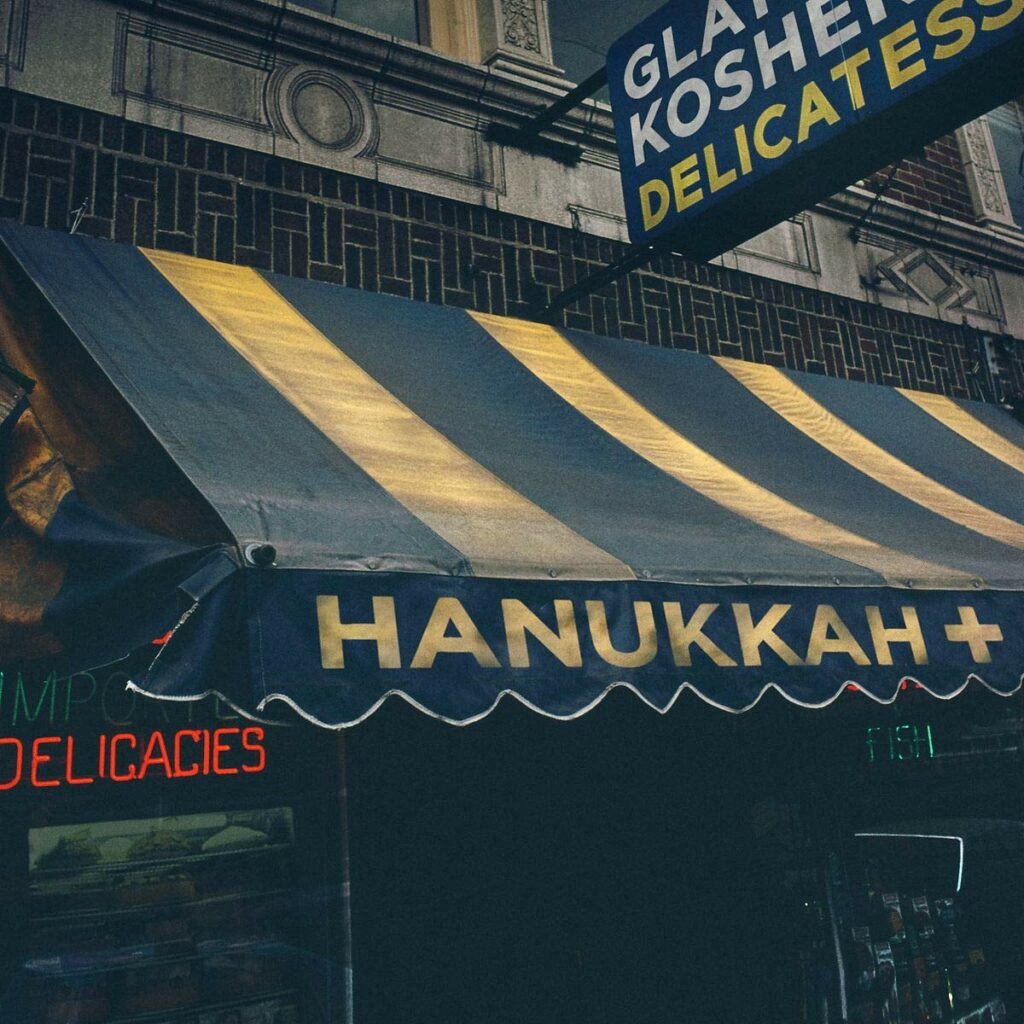
Despite the variety of styles on the album, ranging from Yo La Tengo’s bossanova “Eight Candles” to the Watkins Family Hour bluegrass cover of Woody Guthrie, it still feels cohesive. Not to be missed is HAIM’s cover of Leonard Cohen’s 1984 classic “If It Be Your Will.” As much a prayer as it is a song, the dreamy, reverb-filled arrangement feels intimate, as if we are listening in on a private moment of supplication. “If it be your will / To make us well / And draw us near / And bind us tight / All your children here / In their rags of light.” The husky vocals, mellow guitar, and celestial synths evoke an unexpectedly deep feeling of yearning.
Craig Wedren’s “Sanctuary” starts off with an acoustic guitar and Wedren’s not-quite-raspy vocals, as if you were sitting in a cabin listening by the light of the menorah. It sounds a little like The Beatles’ “Blackbird.” The entrance of strings with the poignant lyrics “In my sanctuary / Fight when necessary,” and the ending of the song with a niggun, that classically Jewish mode of singing without words, leaves the listener with a contemplative glow.
Adam Green packs an impressive number of holiday factoids into his peppy rock-flavored anthem “Dreidels of Fire,” one of the more overtly Hanukkah-themed tracks on the album. The combination of spoken verses with a catchy hook makes it hard not to like, even if the lyrics take some unexpected swerves—an anthropomorphized Hanukkah breaks his heart?—but it’s still a fun song.
It was disappointing to find Christmas on a Hanukkah album, but it turns out that the other December holiday is unavoidable even here on the Jewish endcap. The great folksinger Loudon Wainwright III acknowledges that as a non-Jew, he’s out of his element, singing “because I’m a third / A numeral, not a word / Singing of Hanukkah might seem faux.” His “Eight Night a Week” is a rollicking and enjoyable ragtime swing, with oil, latkes, and menorahs, but did we really need the Christmas trees? And few listeners will appreciate the comparison of the miracle of the oil lasting eight nights to the New Testament’s miracle of the loaves and fishes. Can we not have just one little Jewish space for ourselves? Still, it’s delightful to hear these very different musicians illuminate a minor holiday with major musical potential.
Comments
You must log in to comment Log In
Suggested Reading
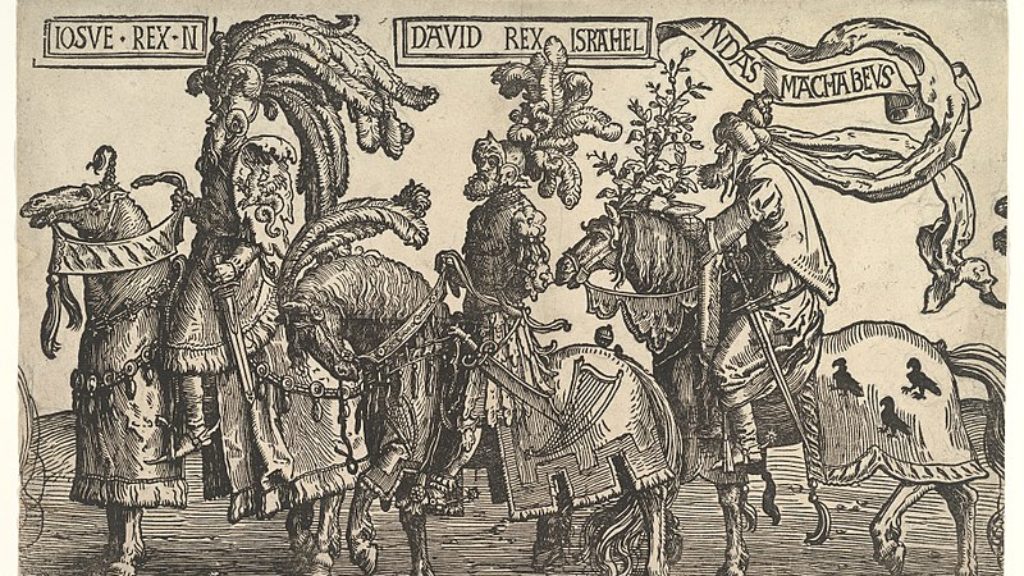
In Memory of Judah Maccabee
That Judah, the great victor of the Hanukkah story, ultimately died fighting the Seleucids is something that surprisingly few Jews know. And were the Maccabees actually underdogs?
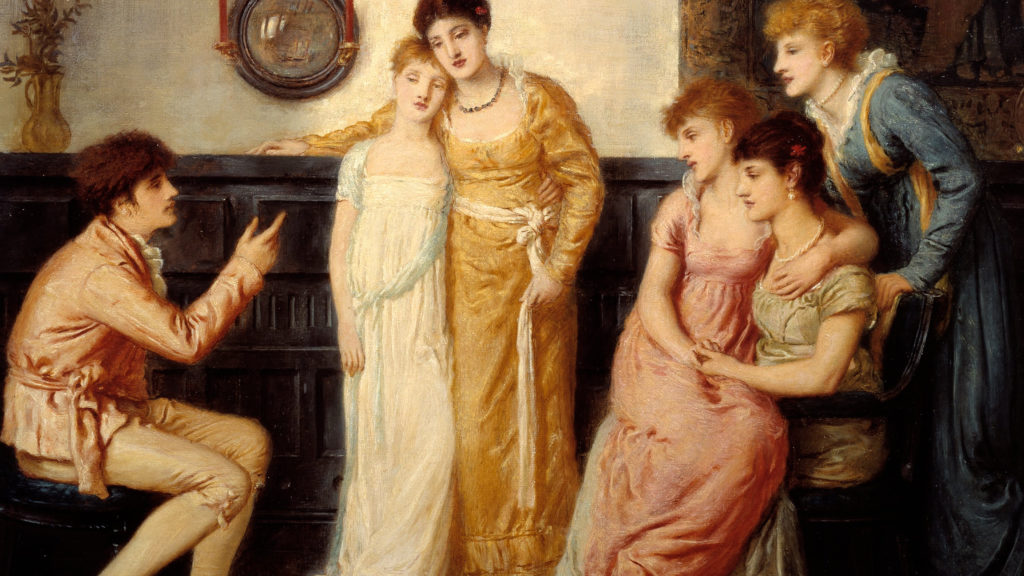
Raising the Asmonean Banner
Two teenaged sisters wrote surprisingly sophisticated and moving poetry about the Maccabees and a medieval massacre.
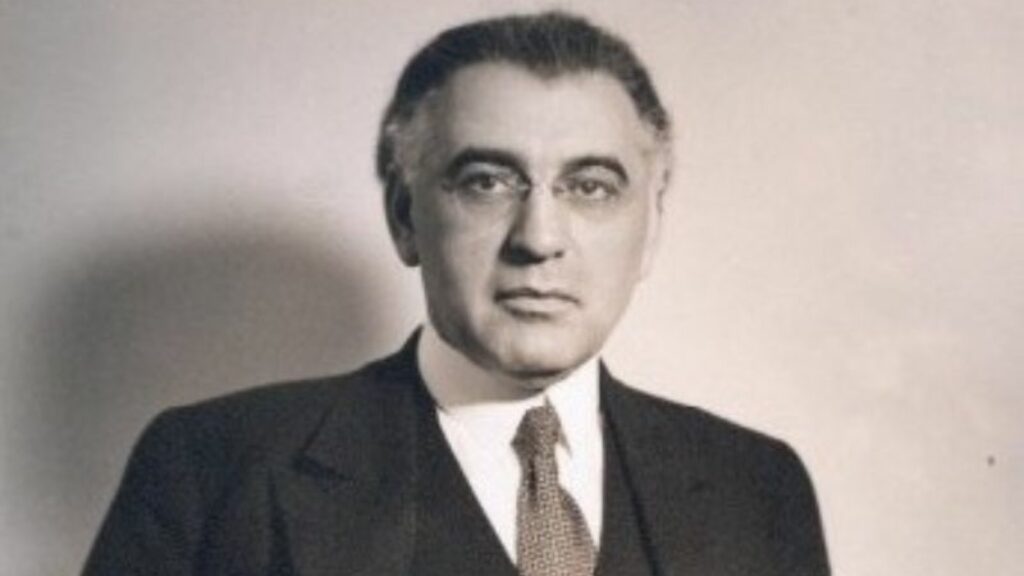
What Is a Jew? The Answer of the Maccabees
In 1958, David Ben-Gurion sent a letter to fifty Jewish leaders around the world, asking, "Who is a Jew?" Many replied, but Abba Hillel Silver did not—not directly, anyhow.
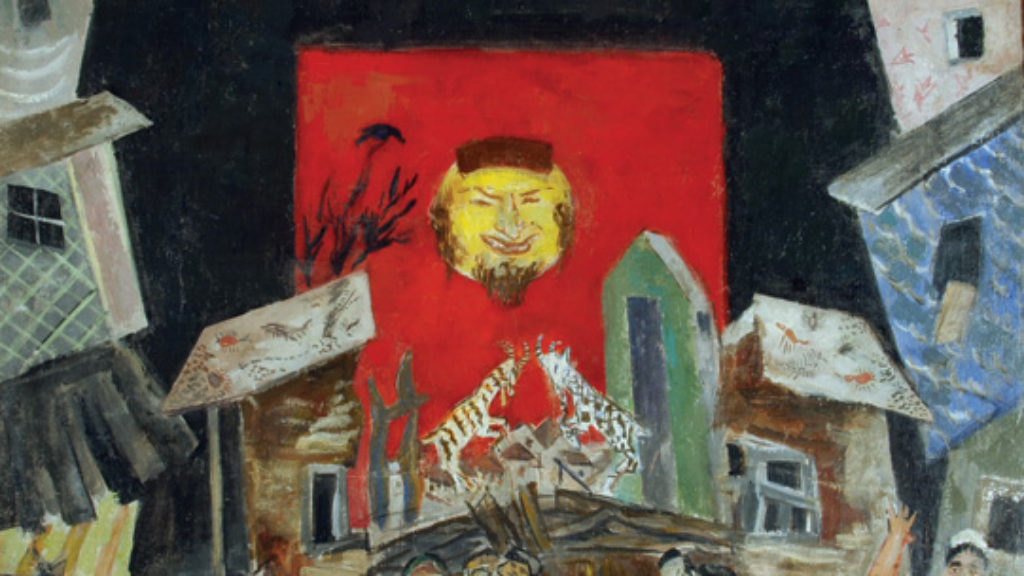
Playing the Fool
Of the many varieties of anti-Semitism, or anti-Judaism, that have plagued the Jews over the centuries, two recurrent general patterns can be identified by the holidays that celebrate triumphs over them: Purim and Hanukkah.
Rafi
Why not, "Maoz Zur," and similar Hebrew ditties instead of the silly, assimilated stuff? The fact that on occasion, Hanukah, which comes around at the same time every year on the Hebrew c alendar is foreced into service by the assimilated to "counter" the other holiday just shows how pathetic is the assimilated crowd.
Just as one little bottle of oil was able to burn 8 days instead of one until kosher oil could be obtained should demostrate that staying true to our history and traditions is what kept us and sustained us and brought us to this time.